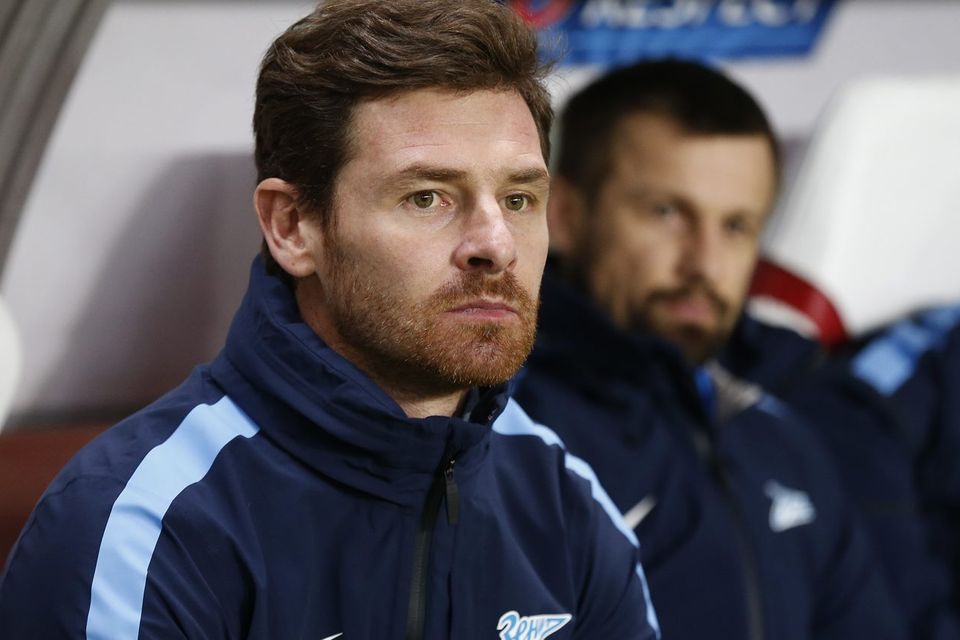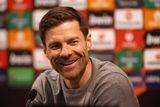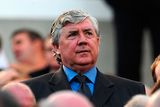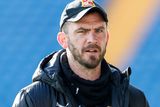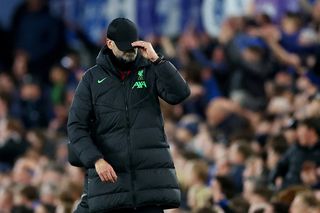Zenit of his achievements puts AVB back in shop window
Andre Villas-Boas's ongoing triumphs in Russia couldn't be ignored for long. Jean Catuffe/Getty Images
André Villas-Boas's ongoing triumphs in Russia couldn't be ignored for long. We last came across AVB on these pages when he was standing on the sideline issuing some final instructions to Andrey Arshavin before sending him on to join the fun in the decadent showcase that was Zenit St Petersburg's meeting with Monaco in the Champions League.
That game, of course, finished scoreless. Arshavin might well have offered some words of his own for AVB before entering what I suppose we have to call the fray, even if the scene was more reminiscent of that picture of David Cameron and Boris Johnson dressed in white tie as members of the Bullingdon Club than anything from top-level sport.
"It's all right boss, I've got this," I imagine Arshavin telling AVB as he looked out at his fellow sportsmen playing with the enthusiasm of some apathetic students who had just been woken from a mid-morning lie-in and dosed with ketamine. "This is what I do."
AVB has done a splendid job at Zenit, there is no denying that, even if they have since exited the Champions League. He took over in March and, as he might say himself, immediately tasked himself the challenge of improving individual competitive values within an ongoing progressive team framework.
Naturally, this brings us to Hulk. According to some reports, Hulk was "holidaying in London" when AVB's predecessor Luciano Spalletti was sacked. Hulk saw it slightly differently, posting a picture on Instagram which showed Hulk and his agent on a private jet with the caption "going to work in London".
We know that the definition of work is elastic for the modern professional footballer and is no longer restricted to what goes on on the training ground. A trip in a private jet for work in London is the modern equivalent of looking in on the auto parts shop underneath the Vauxhall arches which the 1970s footballer invariably had a share in.
It was Rio Ferdinand who blazed a trail in this regard when he was unfortunately linked with a move to Chelsea a few years ago having popped into a London restaurant to see his agent and pick up 'some paperwork' to peruse on the journey home which ended with a chance encounter with Peter Kenyon. Ferdinand, it seemed, was like a cabinet minister and would spend any time on the road looking over documents, presumably while wearing a pair of half-moon spectacles.
These days a footballer like Hulk sees nothing unusual in flying from St Petersburg to London for 'work'. If this work coincides with the dismissal of a manager with whom he had a difficult relationship then that is unfortunate.
Happily, AVB's arrival has rekindled Hulk's love for the game and he has been central to Zenit's rise to the top of the Russian league. One assumes the collapse of the rouble will do nothing to diminish his enthusiasm or his ability to holiday or work in London.
The pair are two of the great phenomena in this world. Hulk appears to be one of those footballers whose rates have been set by the taxing master and are benchmarked in a way the rest of us can't quite understand, like lawyers at a tribunal. Occasionally reports will appear saying that, say, Chelsea or PSG are ready to pay €50m for Hulk and we digest this news as best we can.
Ronald Koeman recently ruled out a move for Wesley Sneijder saying that Southampton couldn't afford his wages. His wages reflected a time when he was coveted by the top clubs in Europe but they remain at that level, football's equivalent of upward-only rent reviews
Russia was always a welcoming market for these footballers so it was alarming to read reports which suggested that the economic hardship could lead to a mass exodus.
AVB himself has been linked with a return to England but he also took time out from his fine work to offer an explanation for his failure at Tottenham.
In essence, AVB made the claim that if Tottenham had better players he would have done a better job but the details were again taken to illustrate that English football is having problems adapting to the director of football model of recruitment.
In fact, English football appears to have the same problems with the model that others have if the model is to blame for creating more instability for managers.
The average tenure of the Premier League manager is dropping fast and is now more in line with other leagues in Europe where they are more familiar with a system where a coach coaches and others recruit the players. In England, the new model has allowed clubs who were badly run under the traditional system to be badly run under a new system. AVB's recent complaints about Tottenham might have taken in director of football Franco Baldini but working with Daniel Levy will be difficult as long as he implements what can essentially be seen as the Daniel Levy model.
"The chairman proposed a challenge to increase Tottenham's competitive level, but immediately Modric left and we didn't get any of the targets I had identified such as Joao Moutinho, Willian, Oscar or Leandro Damiao," AVB mordantly quipped on Portuguese television. "These were promises that were not kept. I had a group of players I had not chosen. In two years I lost Van der Vaart, Modric, Bale, and all the promises made were unfulfilled."
Tottenham disputed his recall of these events but it didn't really matter, AVB was playing a parlour game which managers cannot lose: These are the players I wanted to sign.
By their nature, managers recall the good players they missed out on, to the good ones they signed who disappointed or the bad ones they weren't allowed to buy for a good reason.
AVB is a parlour game himself, a manager who looks good from a distance, who looks like a manager should and who will provide success if given the right assistance or even, in this case, the assistance of Hulk. Daniel Levy's assistance, on the other hand, is something only a few enjoy.
dfanning@independent.ie
